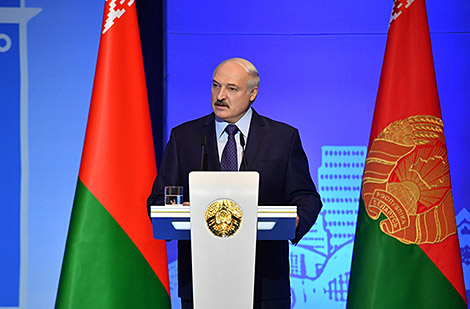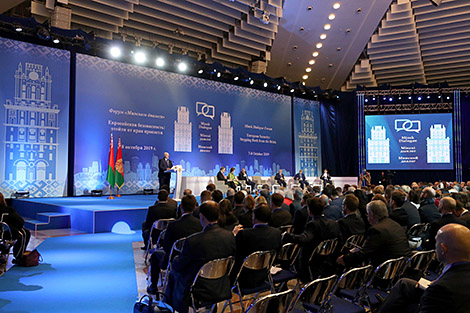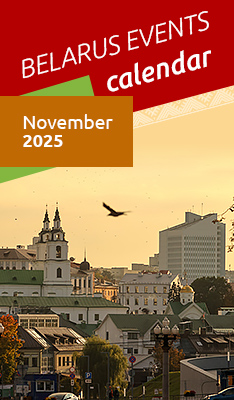Opinions & Interviews
Belarus calls for declaration on non-deployment of INF-range missiles in Europe

MINSK, 8 October (BelTA) – Belarus suggests drawing up a multilateral political declaration of responsible countries on the non-deployment of medium- and shorter-range missiles in Europe, Belarus President Aleksandr Lukashenko said as he spoke at the international conference "European Security: Stepping Back from the Brink" in the Belarusian capital on 8 October, BelTA has learned.
“With the INF Treaty over, the United States and Russia are growing increasingly concerned over security in the Eastern European region.
This is evidenced by our recent contacts with American representatives and the message from Russian President Vladimir Putin to a wide range of countries about a moratorium on missile deployment in Europe and other regions of the world,” the president said.
“Maybe we should get together and discuss this, perhaps, the most pressing problem today. Should you wish, we can gather in Minsk or elsewhere. Moreover, Belarus has already suggested adopting a multilateral political declaration of responsible countries on the non-deployment of medium- and shorter-range missiles in Europe. We are ready to sponsor or even draw up the text of this document,” the president said.
The head of state noted that such a declaration would not be an adequate replacement of the treaty, but it could help to fill the legal vacuum in the regulation of this segment of weapons. “We hope that such a document will receive the support of many states and will be a practical contribution to the implementation of our initiative to launch an international dialogue on security,” he added.
The president noted that people in Belarus know the situation around the ICBM mainly from Russian-language sources, which explain Russia's position. Aleksandr Lukashenko recently heard a different point of view while talking to a high-ranking American politician. The Belarusian leader noted that there was no obvious need to kill the INF treaty, as Russia is ready to make all sorts of concessions. “I set out the position, as we hear it from Russia, and his response (actually a rebuke) struck me. He said: ‘No, it is impossible to talk to Russia on this topic, they don't hear our initiatives at all,’ the president said. "I thought, ‘Where's the truth?’. Probably it would make sense to get together and discuss things, hear different points of view and at least understand who is right here. It's very important to understand the problem,” Aleksandr Lukashenko said.
 He stressed that Belarus has been a donor of stability, a supplier of European and international security since it became independent and sovereign more than a quarter of a century ago.
He stressed that Belarus has been a donor of stability, a supplier of European and international security since it became independent and sovereign more than a quarter of a century ago.
“The success story of Belarus as a reliable partner, who enjoys the trust of both the East and the West, could be the answer to the question whether Eastern Europe can serve as a cross-border belt of stability and constructive interaction. Today, the new success story of European security should be written literally bit by bit. Small and medium-sized states such as Belarus can make a real contribution to the renaissance of the Helsinki spirit in Europe. I am convinced that the implementation of this approach is beneficial to all the key world players - Russia, the EU, the United States, and China,” the Belarusian leader said.
The president considers it an abnormal situation when leaders of countries of the European region have not gathered for a long time to discuss the current situation and problems, to talk face-to-face and give a signal to the planet. “If not a signal, then at least we could dispel all sorts of myths,” he continued. “Why do we need the OSCE then? Why did we create this organization? To send missions to elections? This is the organization for security and cooperation in Europe.”
The resumption of the Helsinki process will reduce the level of existing risks and geopolitical problems in Eastern Europe, free up significant resources that can be directed for peaceful, creative goals. “It will also help to halt further escalation of conflicts and gradually improve the atmosphere in relations between the West and the East,” Aleksandr Lukashenko believes.







 print version
print version make home page
make home page add to bookmarks
add to bookmarks

